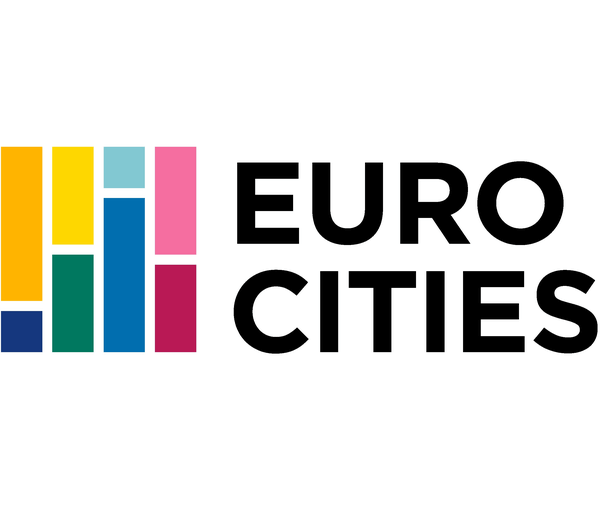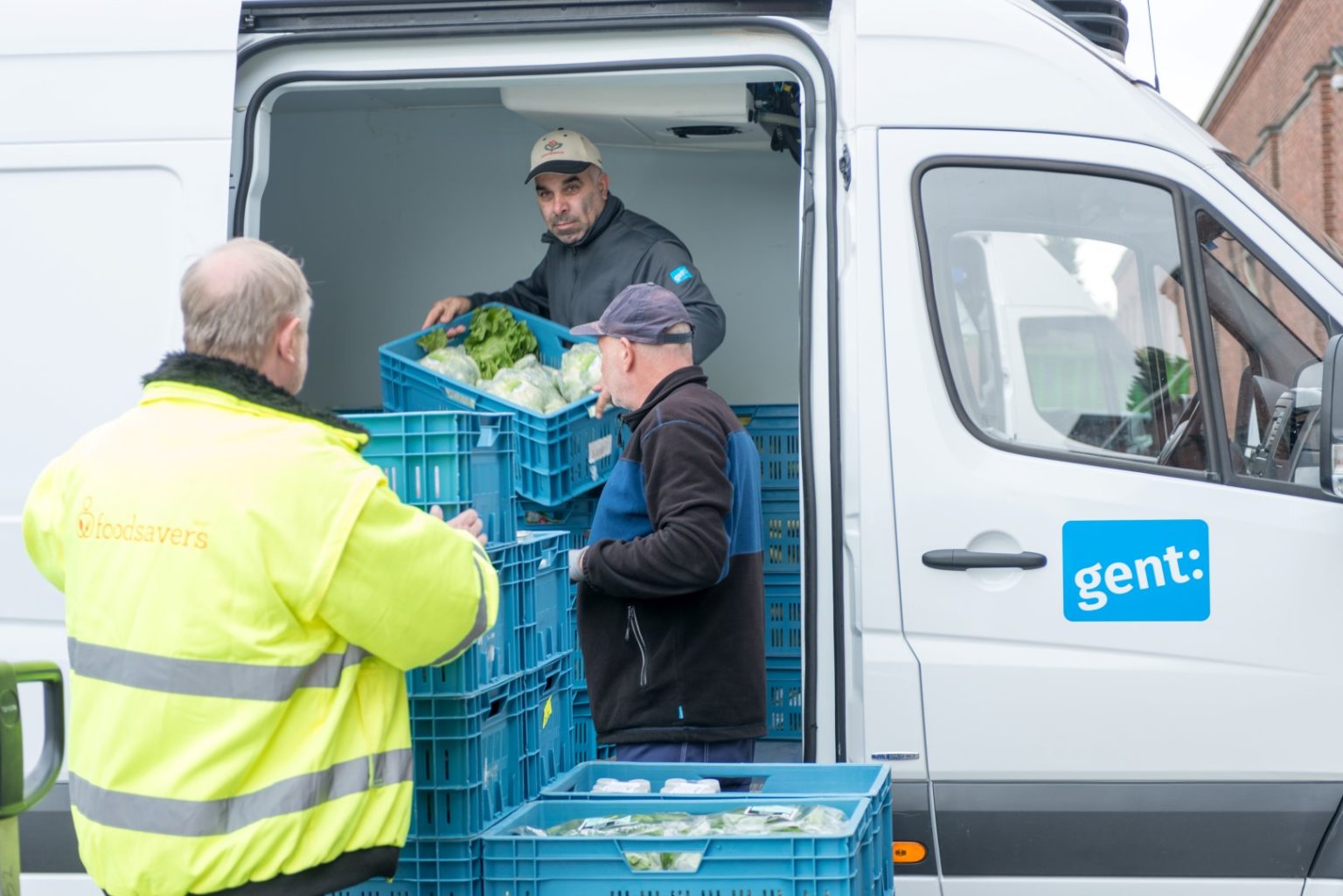 Foodsavers Ghent is a distribution platform for food surpluses - © City of Ghent
Foodsavers Ghent is a distribution platform for food surpluses - © City of Ghent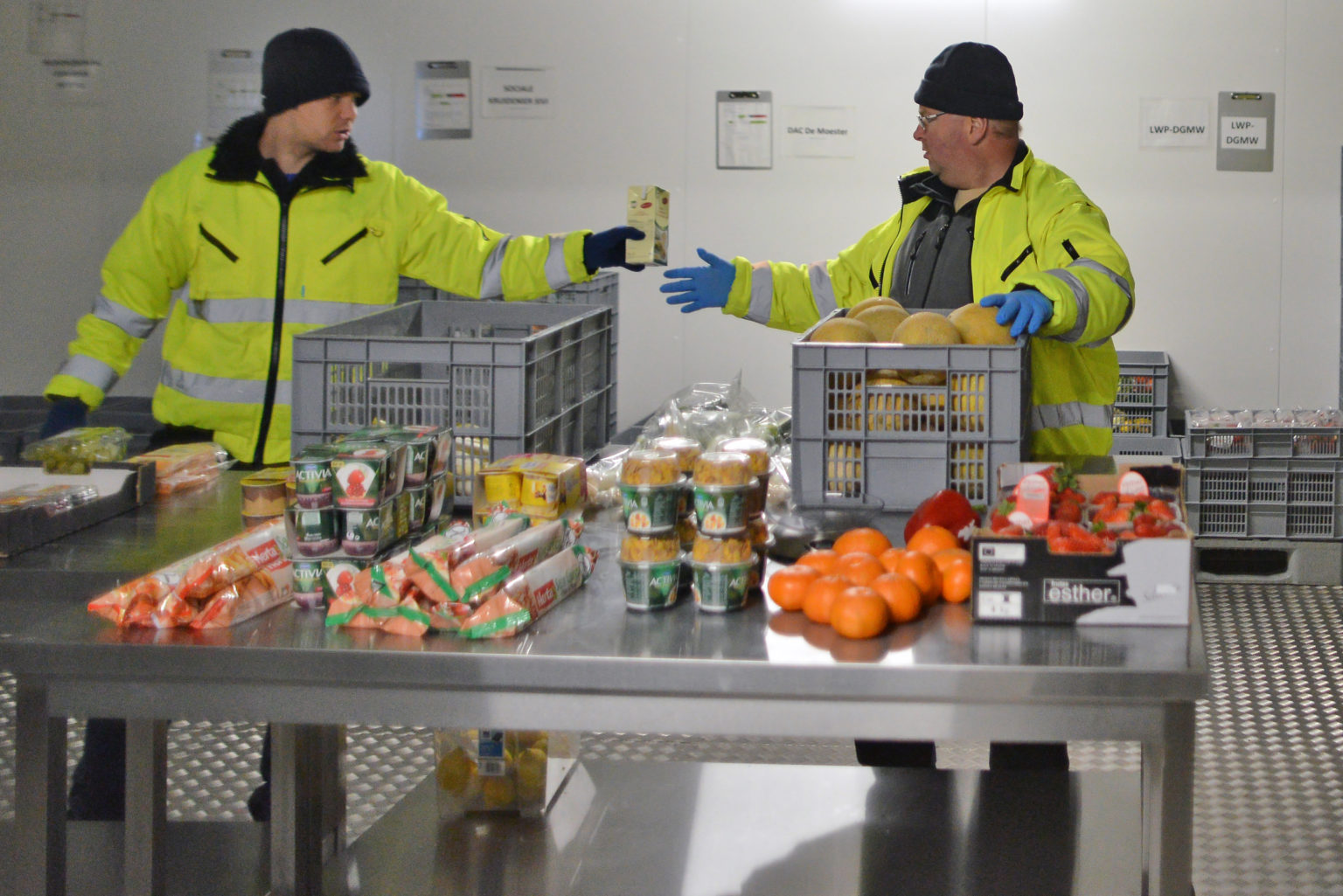 Food surplus distribution at Foodsavers - © City of Ghent
Food surplus distribution at Foodsavers - © City of Ghent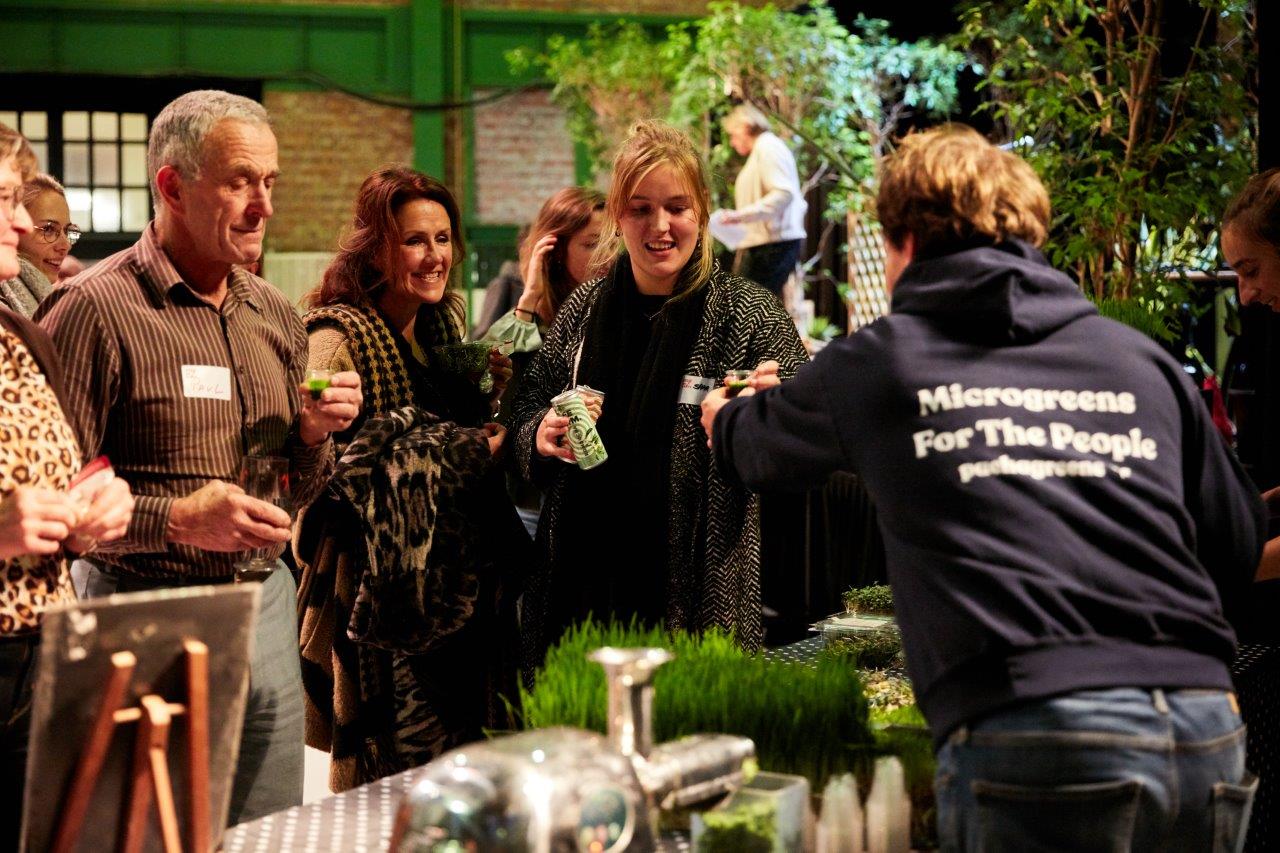 Ghent farmers at a local food market - © City of Ghent
Ghent farmers at a local food market - © City of Ghent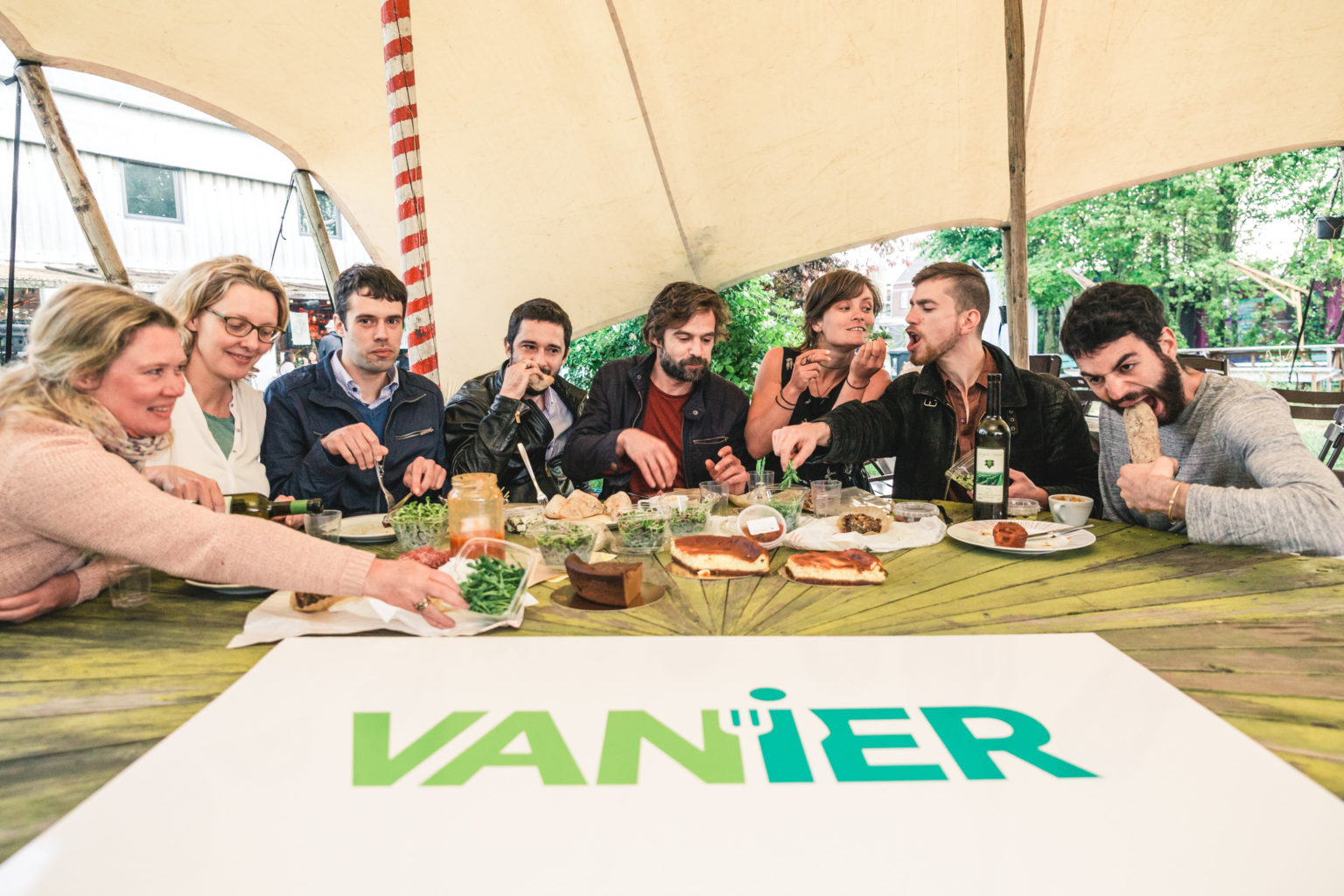 Vanier project participants - © City of Ghent
Vanier project participants - © City of Ghent This is how we work together - © City of Ghent
This is how we work together - © City of Ghent
City
Ghent
Main actors
Local Government
Project area
Whole City/Administrative Region
Duration
Ongoing since 2013
Co-creative food governance for impact
In 2013, the City of Ghent launched its local food strategy “Ghent en Garde. The strategy aims to make the local food system more sustainable: strengthen short food supply chains, increase sustainable production and consumption, while also allowing for better access to food and decreasing food waste.
Ghent’s urban food policy demonstrates the potential to transform the food system at the local urban level using co-creation and participatory governance. Ghent’s food council unites stakeholders from across the food system. Their role and work processes are co-created in a flexible way together with the City. Over the years, the food council has evolved into an active group with strong connections to citizens and organisations and a clear impact on the City’s policy.
Eurocities Awards
This project was awarded the 'Eurocities Awards' in 2021 in the following category: From farm to fork - working with people.
The current food system is facing several complex challenges. 800 million people worldwide are hungry while an estimated 30% of food is wasted and 2 billion people are overweight or obese. Additionally, dietary patterns have a heavy impact on climate change and environmental degradation.
With population in cities booming - population living in urban areas is expected to increase to 66 percent by 2050 - cities are at the forefront of these global challenges. Cities become increasingly important in making sure their population has secure access to sustainable, healthy and affordable food.
Ghent en Garde tackles these challenges at the local level in a comprehensive way, addressing all different stages of the food system through 5 strategic goals. These goals were decided upon by various stakeholder discussions and input from the City administration:
• A shorter, more visible food chain
• More sustainable food production and consumption
• More social added value for food initiatives
• Reduce food waste
• Optimum reuse of food waste as raw materials
The 5 strategic goals were later refined translated into 20 concrete operational goals.
Ghent en Garde tackles different challenges through tailor-made responses. New solutions are co-created with relevant stakeholders in a collaborative process. At times the City has its own tools (e.g. urban planning, public procurement), but often the role of the City is one of facilitating early dynamics, strengthening them and helping them scale up. Through stakeholder engagement and pilot projects, we look for the right approach for every challenge ahead and stay in constant interaction with the actors engaged and dare to adapt our approach over time.
De Goedinge: providing agricultural land for local food production
As part of the food strategy, Ghent invests in agricultural land for local food production. De Goedinge is a pilot project putting 10 ha of land for free on the market for local, sustainable food production that is being sold to the urban population. This pilot project allows the City to experiment with criteria for sustainable agriculture, cooperation and social aspects of food production.
The lessons learned from the Goedinge project will help to develop new models to roll out on the public agricultural land in the years to come. They will also inspire the co-creative process of drawing up an agricultural vision for Ghent that will start in the fall of 2021, in collaboration with the food council.
Vanier: a professional short-chain platform
The City of Ghent supported the start of Vanier, an innovative multi- stakeholder cooperative platform for short-chain food. Vanier brings professional purchasers from restaurants, industrial kitchens and traders into contact with producers from the Ghent region. This way, the sales market for these producers is noticeably expanded and purchasers can have a closer connection to the producers and the products.
Coaching of 67 vegetable gardens
The City of Ghent has supported schools and communal vegetable gardens since 2014. No less than 42 schools and 25 neighbourhood vegetable gardens have received assistance. It has also developed an online helpdesk where citizens can ask their questions regarding their own vegetable garden, no matter how small it is.
40 pick-your-own fruit spots
Since 2019, Ghent en Garde has made a list of all fruit trees where citizens can go and pick their own fruit for free. On a digital map, you can see approximately 40 pick-your-own fruit spots in parks or gardens. The project has attracted many enthusiastic fruit pickers. The project was first proposed by one of the food council members and received support from the food council. It was further developed and supported by the City of Ghent.
Ghent: pioneer in protein transition
Ghent has been a forerunner in the protein transition for over 10 years. In 2009, Ghent started “Thursday Veggie Day”, a campaign where citizens are encouraged to eat vegetarian meals at least one day a week. On Thursdays, schools and public services only serve vegetarian meals. Several initiatives have been launched over past years to encourage participation in Thursday Veggie Day, including promoting restaurants and shops offering vegetarian alternatives, coaching restaurants on how to cook vegetarian meals, vegetarian cooking workshops for hundreds of citizens and students. The campaign itself was launched by a small local NGO, but later upscaled and supported by the City.
The Thursday veggie day campaign has resulted in a significant higher number of citizens willing to reduce their meat consumption, compared to other Flemish cities. This also made Ghent attractive to research, business, restaurants and caterers specialized in plant-based food.
Building on all these years of experience, the City of Ghent will, is the first city in Belgium, to present a local protein transition action plan, showing the way toward a shift in protein consumption to 60% plant- based, including specific indicators and measures on the production side as well as on the consumption side. The plan was developed with the food council and after a series of consultations with stakeholders.. In parallel, a consortium will be formed to monitor and measure the impact.
Sustainable school meals
School meals in municipal schools and day-care consist of more organic ingredients, less meat and more seasonal products. Criteria such as food wastage and animal welfare are also taken into consideration. Through the sustainable school meals programme 4500 students are served 775,883 meals annually.
Foodsavers: 1.000 tonnes of surplus food redistributed
With Foodsavers, Ghent has been tackling food wastage on a large scale. More than 1,000 tonnes of surplus food from supermarkets or the auction have been redistributed via poverty organizations and social restaurants. The goal is threefold: saving on CO2 emissions through less food waste, employing people in long term unemployment, and fighting poverty through better access to healthy food for people in poverty. The Foodsavers project resulted from a bottom -up idea, that was picked up and further developed by the City. Foodsavers is now carried out as regular policy but continues to be managed by a steering group of stakeholders.
71.000 Restorestjes boxes in 180 restaurants in Ghent
In 2015, the Ghent was the first Belgian city to launch the ‘Restorestje’ initiative: a free, compostable box for restaurant leftovers. In five years, no less than 71,000 boxes have been distributed by 180 participating restaurants in Ghent. The concept of the ‘Restorestje’ came out of a citizens’ consultation and was later adopted by the City.
Ghent en Garde is mainly funded from the budget of the climate and environment department of the City of Ghent.
The total annual budget for food policy is 220,000 EUR, which includes about 85,000 EUR for food governance and the Food Policy council:
- 60,000 EUR annual budget of the Food Policy Council for innovative projects
- About 25,000 EUR overheads (fee for the process facilitator, events, communication)
Specific policy areas and projects are funded by other city administrations. This means the total budget spent on realizing the objectives of the food policy are many times this amount.
One of the important aspects of Ghent en Garde is its innovative multi-stakeholder governance model. The model is built on co-creation and participation.
Food Council
The food council unites the different stakeholders that are relevant to the local food system. It has representations of the agricultural sector, distribution and trade, restaurants, civil society and research. The food council gives advice to the City, acts as a sounding board and is also actively engaged in the development of the food policy and its goals and priorities. The food council has defined the operational goals of the food policy and is currently further developing plans and indicators for specific topics of the food strategy (e.g. agriculture, protein transition).
From 2018 the food council also has its own dedicated budget to support innovation in the food system, on which it has the power to decide independent of the city administration. Since 2018, 13 initiatives have received financial support and advice.
This way, the food council fosters innovation in different fields of the food system: ranging from logistic solutions (e.g. a solar- powered boat that brings local food products directly from the farm to the city centre), food waste prevention (e.g. Empowering household helps to become “fridge managers”), access to food (e.g. a mobile social kitchen and a mobile sandwich bar) local food production ( e.g. “Gentse kweek”: local farmers teaming up with local food processors in order to process local products more locally and sell them under their own label) or promoting sustainable consumption (e.g. “Veggie is Hallal”: a catering business run by Muslim woman promoting vegetarian food).
Flexible working groups
The working groups are a way to work on certain challenges with specific sets of stakeholders. They turn strategic challenges into operational solutions and look for innovation that requires a collaboration between several stakeholders. Those groups are created around a certain task or issue and may be open for members from outside the food council.
Working groups are limited in time and flexible in ways of organizing themselves. Topics may vary from very strategic work (like co- creating a vision on sustainable agriculture in Ghent, and a strategy for utilizing City owned agricultural land for food production, a process that will start in the fall and run for two years) to operational issues like organizing a network event.
Ghent en Garde has brought significant change to the local food system. The participative governance model, Ghent’s food policy has moved from launching small-scale initiatives to bringing more structural change to the food system. The results are clear: short supply chain initiatives are booming; food waste is decreased while vulnerable citizens have improved access to fresh and healthy food. 7% of the citizens are now vegetarians, and thousands of pupils eat healthy, sustainable school meals every day.
On top of its policy work, Ghent en Garde plays an important role in connecting and engaging citizen and organizations. Through events, workshops, networking and public consultations, hundreds of citizens and organizations have been involved in Ghent’s food policy and projects. Ghent en Garde also has strong communication tools. The online platform www.gentengarde.be is a meeting place revolving around sustainable food in Ghent and has reached over 50,000 Ghentians so far. The website has listed more than 1,000 local food initiatives.
Ghent en Garde has inspired many cities in Belgium and worldwide has received a lot of international recognition. In 2018, Ghent won ICLEI’s transformative action award and in 2019, Ghent received a Global Climate Action Award from the United Nations for its pioneering and engaging climate actions via the “Ghent en Garde” food policy.
Working through a multi- stakeholder governance model also has its own set ochallenges. Adapting our role as a local government to the specific situation takes creativity and adaptability.
A recent example is the effort to scale up the sale of local products through short supply chains. Studies had shown that there was a latent demand for local products from professional customers (restaurants, canteens) but the campaigns and support mechanisms just did not work for this audience.
That is why the City decided to step in, and took the initiative to set up a pilot project. Following a participative study, involving the food council, farmers and entrepreneurs, Vanier Ghent was launched in November 2018 (the name translates as ‘from here’). It brings more than 40 producers from around Ghent together and has supplied local products to over 50 different restaurants and retailers in Ghent. Most of the producers are located within 20km from the city center. By bringing together supply from different farmers on one platform, and professionalizing short chain sales (high service level, at the doorstep delivery, easy billing…) Vanier Ghent makes qualitative local products accessible for professional users in Ghent.
For producers, working together within the cooperative has many benefits. Not only do they get a better price for their products, it also opens new market opportunities. Overhead costs like transportation, IT, marketing and promotion are shared. The platform organizes trainings and events and advocates on behalf of the farmers.
Overall, the Vanier project is a pilot project that investigates whether a value- driven, cooperative model can survive and thrive in a highly competitive economic context like the food business. It is also an experiment in navigating the limits of taking up an active role as a City, without causing undue competition with other economic actors.
More recently, the corona crisis has been a stress-test to our governance system. Not only did our food council have to adapt and go digital to be able to maintain good connections with our stakeholders, there were also big and smaller challenges to attend to such as keeping foodsavers operational and assuring the continuity of food distribution to people living in poverty.
But the corona crisis was also an opportunity for the food council to learn to constantly evaluate and react quickly to changing circumstances. For example, the closing of the public markets had a big impact on local farmers, who could no longer sell their produce at the farmer’s markets. While the general demand for local products was booming. The food council quickly convened online to get an overview of the state of play and challenges ahead. They assisted short chain initiatives to switch to take- away in order for them to remain in business and even benefit from the increased demand for short chain products. The food council also decided to prioritize short chain initiatives in the 2020 call for innovative projects, in order to direct the budget as much as possible to making local farmers more resilient to the corona crisis. The City of Ghent followed this example and made additional support available for farmers wanting to switch to short chain sales.
In general, the corona crisis demonstrated that having a multi stakeholder system in place, helps to quickly react and adapt to unexpected crisis, switch attention from broader policy questions to very operational issues quickly in case of an emergency and have a direct impact in the field.
Through their purchasing power, closeness to their citizens, public policies and awareness raising initiatives cities are important allies for the European Farm to Fork strategy, and partners in implementing it and translating it into concrete measures.
Ghent en Garde is an excellent example of how engaging people and organizations through flexible governance mechanisms can have a real and tangible impact on different aspects of the food system. Leading to more sustainable and healthier diets, local food production less food waste and better access to food.
External links / documents
On Map
The Map will be displayed after accepting cookie policy
